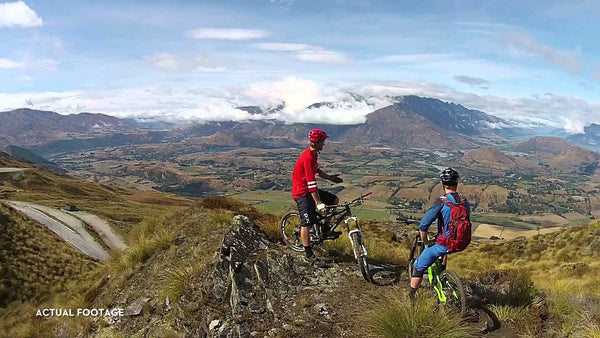Understand the new CAA Regulations, with Mike Carey
By Mike Carey
With drones only increasing in popularity, the need for rules and regulations has arrived to ensure the safety of both the public and drone pilots. Some would think that the current news and media coverage of the need of these regulations, and how they would negatively affect drone pilots, would hamper the purchase and popularity of drones in South Africa. The opposite had shown to be true as drones and media produced with them has become even more popular locally.
The new drone regulations that will be effective from 1 July 2015 have actually been seen as a big win for hobby drone users. If pilots are open with their intended use of these drones, and they are used for private enjoyment, it seems that pilots may still get to use their new ‘toys’ without excessive red tape.
The new drone regulations actually allow hobby RPAS (Remotely Piloted Aircraft Systems) a lot more freedom than hobby model aircraft. Here is a simple breakdown of what you need to know.
Under the new Regulations Hobby Drone Pilots:
- Do not need an RPL (Remote Pilots Licence).
- Do not need to register their RPAS aircraft.
- Do not need an aviation medical.
- Can fly RPAS up to 7kg weight.
- Can fly at night (previous not allowed for any rc aircraft).
- Can fly up to the height of the highest object in 300m of the drone (up to a max of 400 feet).
- Can fly up to 500m away from the pilot, while maintaining direct line of sight (RVLOS).
- Need to keep more than 50m from people.
- Need to keep more than 50m from roads.
- Need to keep more than 50m from buildings.
- Need to keep more than 10km from an aerodrome (airport or airstrip).
- May not fly in No Fly Zones.

If you currently fly your drone for commercial use and generate income through the use of flying your drone for film or any other trade, then it is advised that pilots go ahead and comply with the regulations that the CAA are imposing on drones and their pilots. Getting the right credentials for the use of your drone would definitely be advised.
Some Drone Operators Already Have Achieved the Following:
- Restricted Radio Licence (also known as Restricted Certificate of Radiotelephony - Aeronautical). Online theory exam at CAA as well as a practical exam with a certified examiner.
- Aviation Medical Certificate (class 4 or 2, or self assessment depending on your operation).
- English Language Proficiency Certificate.
- RPL pilot training (practical and theory training for RPAS as per regs).
- Prepared documents to be ready to submit as soon as it is possible to do so (see below).
- RPAS Flight Manual.
- RPAS Maintenance program (manufacturer).
- RPAS technical description.
- Operations Manual (operator).
- SMS (as per regs).
- QMS (as per regs).
- Field Operations Manual.
- Criminal record checks of all staff.
After the draft regulations are adopted, drone operators will be able to progress further.
Not Yet Possible to Achieve:
- RPL - Remote Pilot Licence. Will be a single online exam at CAA.
- RPA registration (will be a registration number starting with ZT...)
- ROC (RPAS Operating Certificate).
- RLA (RPA Letter of Approval).
- Permission for Aerial Work from Air Services Council.

We are still waiting to find out exactly who will undertake the process of allowing the public to get their RPL (Remote Pilot Licence), and that we will not be restricted by these licence requirements until such a time that they have formally implemented these processes. Until these are put in place, I would state that your drone is a hobby, used for personal enjoyment and that no income will come from the flight in question.
I hope this information has helped in the understanding of the new rules and regulations, we are still going to need to wait until the processes are in place and until they can confirm that the RPL and all the other necessary questions everyone wants to know are laid out in black and white. I believe we will only be receiving the answers to these questions around the end of June. We will keep you posted. Subscribe to our newsletter and ensure that you are kept up-to-date.
Fly safely and understand that the general public is aware of the rules being imposed so stay cautious and be considerate of those around you.
Happy flying.
If you have any further questions you are welcome to mail us at, info@actiongear.co.za

